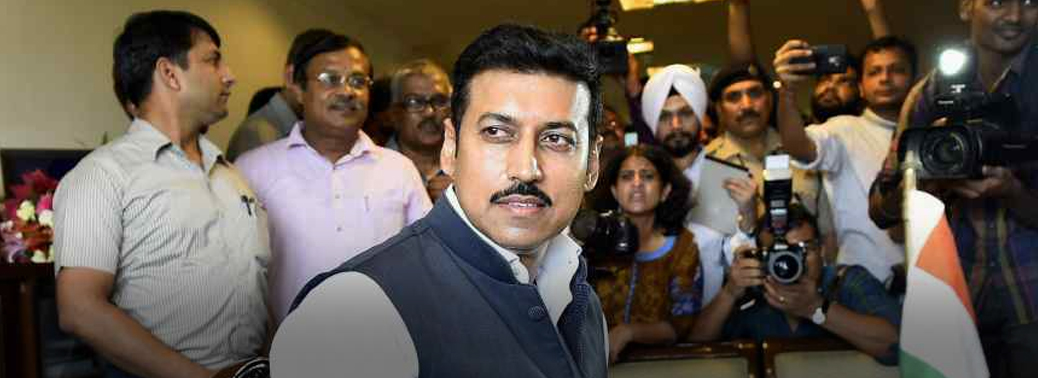REPLACE ‘DALIT’ WITH SC
16, Sep 2018

Prelims level : Paper –I Social Empowerment
Mains level :
- In an advisory to the media, the Union information and broadcasting ministry has asked them to refrain from using the word “Dalit” and instead use Scheduled Caste to refer to the community.
Background:
- The order comes after the Bombay high court asked the ministry to consider issuing a direction to media to stop using the word dalit.
- The central government had also recently issued an advisory in which the use of Dalit was barred in official communication. In the March circular, the central government had asked all state and Central government departments to avoid the nomenclature “Dalit” for citizens belonging to SC/ST.
- the constitutional term Schedule Caste in English and its appropriate translation in other regional languages should alone be used for all official transaction, matters dealing, certificates etc., for denoting the persons belonging to the Scheduled Castes notified in the Presidential orders issued under Article 341 of the Constitution of India.
Reasons:
- As the word Dalit does not find mention in the Constitution of India or any statute. Thus the term was unconstitutional.
- The term ‘Dalit’ has only been used for the purpose of “electoral politics”.
- The word ‘Scheduled Caste’ is a legal term and as such it is neutral.
- Its use risked erroneously labelling the entire population of untouchables in India as being united by a radical politics
Against:
- This term has gained a national acceptance and has acted as a unifying force between communities across the country. It has brought the community together across the states, irrespective of language and cultural differences. It has constructed a national identity for the community
- But for movements, for action, those who suffer the realities of caste oppression need a stronger and more assertive identity, something the cold and form “scheduled caste” terminology cannot provide. This is provided, on the other hand, by the word “Dalit,” with its connotations of resistance and revolt.
- That Dalit has encompassed more communities than the official term of Scheduled Castes and is sometimes used to refer to all of India’s oppressed peoples.
- While use of the term might seem to express an appropriate solidarity with the contemporary face of Untouchable politics, there remain major problems in adopting it as a generic term.
- The word ‘Dalit’ gives a pan-India identity to the community, making it a single homogeneous group, and carries the potential to inspire a national movement, as the Dalits’ movement earlier this month showed.
The word Dalit:
- It was perhaps first used in this sense by Pune-based social reformer Jyoti Rao Phule, in the context of the oppression faced by the erstwhile “untouchable” castes from other Hindus.
- Dalit is mostly used to describe communities that have been subjected to untouchability. Such people were excluded from the four-fold varna system of Hinduism and thought of themselves as forming a fifth varna.
- It was popularised by the economist and reformer B. R. Ambedkar, During the 1970s, the followers of the Dalit Panther Movement of Maharashtra gave currency to the term ‘Dalit’ as a constant reminder of their age-old oppression, denoting both their state of deprivation and the people who are oppressed.
- This term for them is not a mere name or title, for them it has become an expression of hope, the hope of recovering their past self-identity. The term has gained a new connotation with a more positive meaning.
- It must be remembered that Dalit does not mean Caste or low-Caste or poor; it refers to the deplorable state or condition to which a large group of people has been reduced by social convention and in which they are now living.
- “Dalit” has become a unifying word for Scheduled Caste communities, whether Buddhist or Hindu. The word ‘Dalit’ is used as a cultural term for assertion and change.
- It does not confine itself merely to economic exploitation in terms of appropriation of surplus. It is also related to suppression of culture; a way of life and value system, and more importantly, to the denial of dignity.
- On the other hand, Scheduled Castes is the official term for Dalits in the opinion of India’s National Commissions for Scheduled Castes (NCSC), who took legal advice that indicated modern legislation does not refer to Dalit and that therefore, it says, it is “unconstitutional” for official documents to do so.
- In 2004, the NCSC noted that some state governments used Dalits rather than Scheduled Castes in documentation and asked them to desist
- The limitations of the Scheduled Caste category is that, under Indian law, such people can only be followers of Buddhism, Hinduism or Sikhism.






